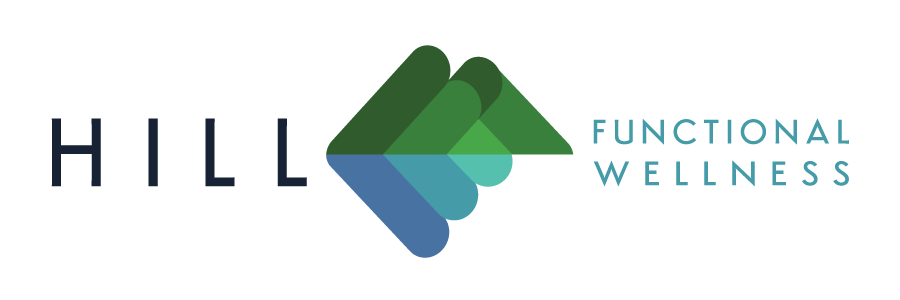A recent meta-analysis aimed at determining the ‘why’ behind the recent spike in chronic disease incidence concluded that 85% of chronic disease onset can be attributed to lifestyle. This means that the decisions we make on a daily basis – what we eat, how much physical activity we get, what our nutrient levels are, what environment we live and work in, etc – are the most important factors we can control to reduce the likelihood that illness becomes a reality.
One of the most devastating chronic diseases in the U.S. is heart disease. Heart disease is a large-scale problem throughout the United States, and has been growing in prevalence for decades now. According to the Centers for Disease Control and Prevention, one in every four deaths is due to heart disease, making it the biggest killer in America. With this in mind, it is important to keep into perspective the fact that the causes of heart disease can largely be prevented with better health education and lifestyle choices.
Here at Hill Functional Wellness, we have discussed the effects and negative impacts of chronic inflammation. There is substantial evidence which links inflammation to the rise of most illnesses and diseases. Plainly put, long-standing, systemic inflammation can destroy the body’s ability to function normally. This can be clearly seen in the case of heart disease – a prolonged inflammatory process can cause the heart to enlarge, thicken, stiffen, and become burdened by plaque buildup.
Sometimes chronic inflammation can go undetected by many individuals for long periods of time. Our advice to our patients is this: how you feel is oftentimes not a clear indicator of how healthy you truly are. Proactivity in your health care is essential to ensure that underlying, unnoticed problems do not become life-threatening problems over time. In the case of heart disease, many people’s first outward symptom of heart disease is a devastating event like a heart attack or stroke.
We believe that our current healthcare system in the U.S. has its priorities backward. Waiting until symptoms are present to seek care is analogous to waiting until your teeth hurt to start brushing them. If you do this, there is most certainly already an established problem. Working toward improvement of your health shouldn’t just be prioritized when you’re sick. To maintain long standing good health, one should take proactive measures every day by making the right lifestyle choices. And have a plan in place to proactively measure your health objectively by regularly testing the right health measures. That is where we can be an asset.
One easy measure to keep track of proactively is blood pressure. Purchasing an in-home blood pressure cuff will allow you to regularly monitor an important health stat. One in three Americans suffer from high blood pressure, and catching hypertension at its onset can drastically improve your ability to improve it without having to resort to prescription medications. Additionally, proactive healthcare is essential to longevity as heart disease can be masked by other conditions like type 2 diabetes and depression. Think of your body as a car: you shouldn’t go years between oil changes, therefore we shouldn’t neglect to service our bodies regularly.
How to Prevent the Causes of Heart Disease
As mentioned, heart disease is largely a result of cardiovascular (and, more broadly, systemic) inflammation. Therefore, in order to prevent chronic inflammation, it centers around conscious lifestyle decisions. Our patients here at Hill Functional Wellness undergo in-depth blood testing to gain a foundational view of what is going on inside their bodies. From there, we can specifically help cater a healthcare plan that supports an individual’s personal needs; and helps them become independently healthy over time.
Both in research studies and in our own personal experience, several lifestyle factors have been identified as major players in the abuse of the heart and blood vessels. While medication can temporarily mitigate some of the damage inflicted upon the heart – some examples of which include high blood pressure medications like ACE inhibitors, diuretics, and beta blockers – they also present drawbacks for heart health. Many of these medications inherently cause un-intended consequences (or side-effects, as they are commonly called). Due to this, we recommend that dedicated lifestyle choices are an individual’s best first-line-of-defense in preventing heart disease.
Lifestyle Choices to Fight Heart Disease
- Regular Exercise
- A daily minimum of 30 minutes is suggested. Both aerobic and anaerobic exercise present great value to overall health.
- Proper Diet
- Exercise benefits are minimized when a healthy diet is not present. A diet high in plants (veggies and fruits) that also may include high-quality animal protein is a great choice.
- Healthy Water Intake
- Dehydration can cause a list of serious health concerns, aside from heart disease. Drinking enough water each day is imperative to a properly functioning body. We recommend daily water intake (ounces) to equal half an individual’s weight. Therefore, a 150-pound individual should consume roughly 75 ounces of water a day.
- Stop Smoking and Limit Alcohol
- Smoking thickens blood vessels, making the heart have to pump harder and faster. While alcohol is absorbed as sugar in the bloodstream and can cause inflammation in the heart.
- Avoiding Toxic Exposure
- Harmful toxic chemicals that are brought into the body via the environment or foods can damage the heart’s wellbeing. Products like weed-killer and bug spray are commonly used household goods that contain these dangerous chemicals.
- Cutting Out Preservatives
- Artificially modified and processed food-products hold harmful sugars and dangerous additives that are not meant to be ingested into the body.
Improving Your Heart Health in Tempe, Arizona
If you are concerned you may be at risk for heart disease, or have been diagnosed with heart disease, we are here to help. Contact us today to schedule an appointment at our Tempe, Arizona office, and we will develop an action plan that works for you and your heart.

